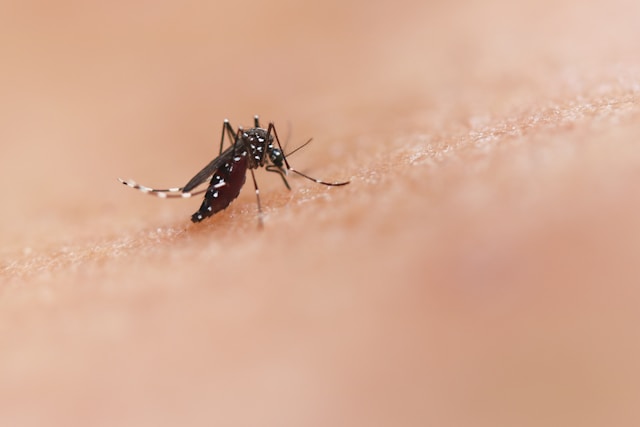Benefits of Hydrafacial Treatment for Every Skin Type
- September 25, 2024
- Health
Skincare treatments generally tend to target specific concerns, but the Hydrafacial Treatment is in a class of its own… Read More

Malaria remains a formidable global health challenge, with millions of cases and deaths reported annually. Despite significant progress in combating the disease, it continues to affect many regions, particularly in sub-Saharan Africa. Global efforts to combat malaria have evolved over the years, incorporating a range of strategies to reduce transmission, treat infected individuals, and ultimately aim for eradication. This article explores the progress made in the fight against malaria and outlines future directions to advance global malaria control.
Artemisinin-Based Combination Therapies (ACTs): ACTs have been the cornerstone of malaria treatment since their introduction. These therapies combine artemisinin derivatives with other antimalarial drugs, providing effective treatment and reducing the risk of resistance.
New Drug Developments: Recent advancements include the development of novel antimalarial drugs and treatments. Drugs like KAE609 and ELQ-300 show promise in overcoming resistance and improving treatment options.
RTS,S/AS01 Vaccine: The RTS,S/AS01 vaccine, also known as Mosquirix, is the first malaria vaccine to receive regulatory approval. It has been used in pilot programs in Africa, offering partial protection against Plasmodium falciparum.
Next-Generation Vaccines: Research into next-generation vaccines, such as R21/Matrix-M and the PfSPZ vaccine, aims to provide broader and more durable protection against malaria.
Insecticide-Treated Nets (ITNs): ITNs have been widely distributed in malaria-endemic regions, significantly reducing mosquito bites and transmission. New formulations and long-lasting nets continue to improve effectiveness.
Indoor Residual Spraying (IRS): IRS involves applying insecticides to indoor surfaces, killing mosquitoes and reducing transmission. Advances in insecticide technology and resistance management are enhancing the efficacy of IRS programs.
Rapid Diagnostic Tests (RDTs): RDTs have revolutionized malaria diagnosis, providing quick and accurate results at the point of care. This has improved case detection and treatment outcomes.
Data and Surveillance Systems: Enhanced data collection and surveillance systems, including geographic information systems (GIS) and mobile health technologies, are improving malaria tracking and intervention strategies.
Health Promotion Campaigns: Public health campaigns and community engagement initiatives are raising awareness about malaria prevention, treatment, and the importance of seeking timely medical care.
Behavioral Interventions: Efforts to change behaviors, such as increasing the use of bed nets and adhering to treatment regimens, are critical in reducing malaria transmission.
Resistance Monitoring: Continuous monitoring of drug and insecticide resistance is essential to adapt treatment protocols and vector control strategies. Developing new drugs and insecticides with novel mechanisms of action is a priority.
Alternative Vector Control Strategies: Research into alternative vector control methods, such as genetic modification of mosquitoes and biological control agents, aims to reduce reliance on chemical insecticides and address resistance issues discovering the world of sparkling wine.
Improved Vaccine Efficacy: Ongoing research seeks to develop vaccines with higher efficacy and longer-lasting protection. Combining different vaccine approaches and exploring new antigens are key areas of focus.
Vaccine Deployment: Expanding the availability and accessibility of malaria vaccines, particularly in high-risk regions, will be crucial for achieving broader coverage and impact.
Health System Strengthening: Integrating malaria control efforts with other health initiatives, such as maternal and child health programs, can enhance overall health outcomes and improve access to care.
Multisectoral Approaches: Collaboration across sectors, including agriculture, environment, and urban planning, can address the broader determinants of malaria transmission and create more sustainable interventions.
Climate Adaptation Strategies: Adapting to climate change and managing environmental factors that influence malaria transmission are essential for maintaining control efforts. Predictive modeling and adaptive interventions can help mitigate the impact of climate variability.
Sustainable Practices: Promoting environmentally sustainable practices and reducing ecological impacts can support long-term malaria control and prevention efforts.
International Partnerships: Strengthening global partnerships and collaboration among governments, NGOs, and research institutions is vital for coordinating malaria control efforts and sharing resources.
Increased Funding: Sustained and increased funding for malaria research, prevention, and treatment programs is necessary to maintain progress and address emerging challenges.
Global efforts to combat malaria have achieved significant progress through advancements in treatment, vaccination, vector control, and community engagement. However, challenges such as drug and insecticide resistance, climate change, and healthcare access continue to pose threats. Future directions in malaria control focus on addressing these challenges through innovative strategies, integrating efforts with other health initiatives, and enhancing global collaboration. By maintaining momentum and investing in research and development, the goal of reducing and eventually eradicating malaria remains within reach.